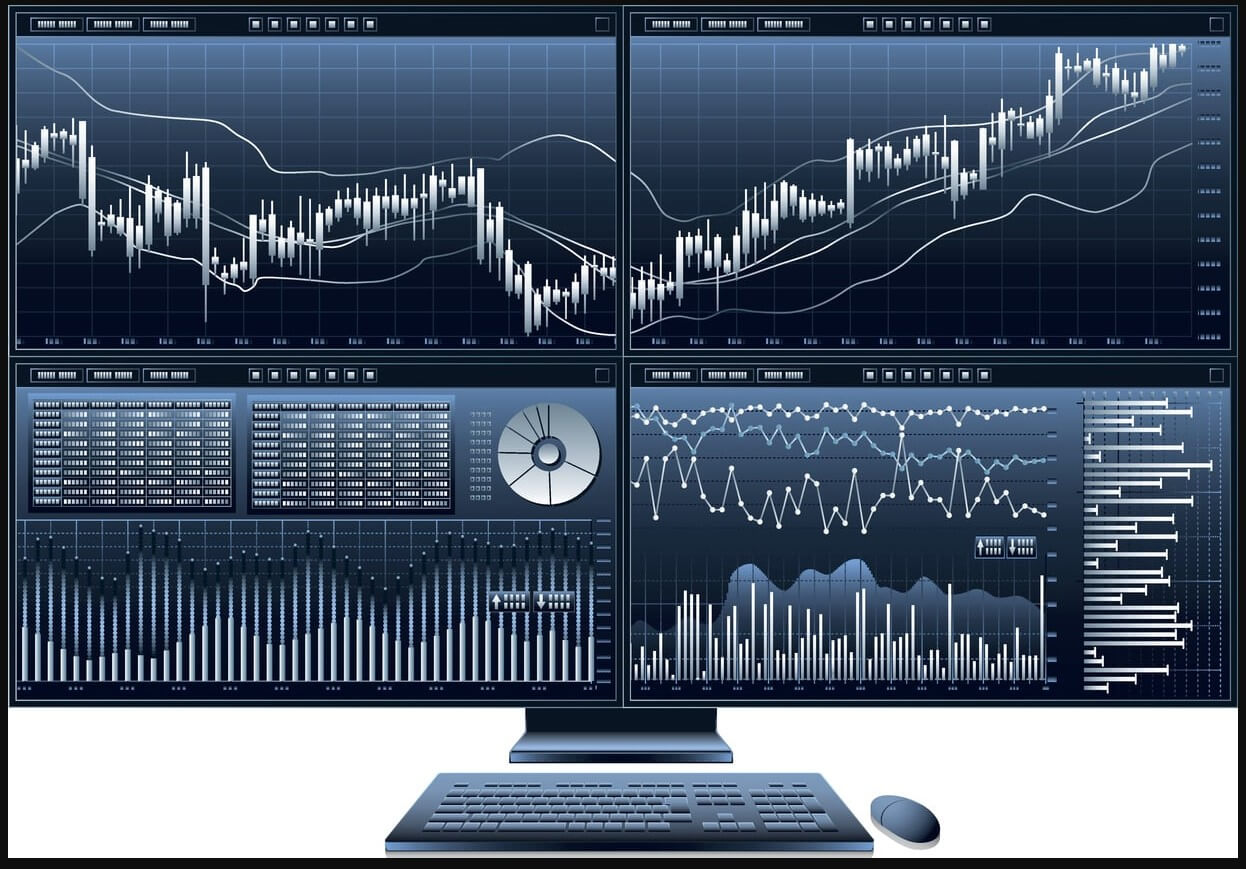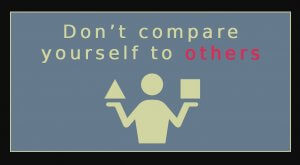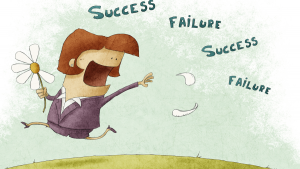Many of the professionals we know today moved on from former jobs, seeking better living conditions and work-life ratio. Some have even tried adjacent markets until they finally morphed into the world of currency trading after realizing its potential and higher liquidity. Today we are exploring the main lessons that forex experts have accumulated after many years of professional trading in the currency market. While, at the beginning of the forex trading career, everyone is eager to cover the basics, mainly focusing on key technical terms and tools, we are summarizing and listing topics that go beyond the fundamentals yet which are still considered essential for anyone eager to continuously devote his/her time and effort and secure financial stability as a result.
Beginners often wonder where to look for information and how to assess which individual could provide the most relevant information that would help them thrive in trading currencies. Also, one of the common questions that forex enthusiasts keep asking deals with the extent to which they should follow their mentors. Some prominent figures in the forex market of today started off their trading careers only with books available at the time, which were quite often less supportive and informative than what they needed to become successful traders. Even today, when we have the internet offering myriad educational sources, many professional traders still share their concerns with the quality of available educational materials, stating that they rarely vary in terms of depth and uniqueness.
Forex education is frequently said to lack the ability to offer signature approaches that reflect someone’s effort to become a professional trader and, as such, it often results from pure imitation. Content creators habitually copy facts and lessons, which makes the pool of information quite limited and highly unimaginative. Traders are often left alone on their path to realizing what will serve them long term, and these circumstances call for additional attention to testing and control over the entire process which may be quite a demanding task for a beginner. Due to the reasons stated above, new traders are advised to consider personalities with a large group of followers who seem to be eager about following these experts’ advice because of the success that results from applying the tips these professionals shared.
Once you start following a system, ensure consistency because many who start to follow professional advice seem to give up halfway through, which leads to frustration and failure. If you are determined to test a specific algorithm, make sure that you record every step, keeping a journal, which will help you assess how well you applied the prescribed tips. Without discipline, no expert advice will ever be suitable for any beginner or more advanced trader, and this attitude will have both immediate and lasting consequences. Discipline also entails that you cannot play on your phone, analyzing the market, while doing multiple trades at work or elsewhere. In addition, such an approach requires you to be devoted to trading alone while you are at it, without allowing yourself to be distracted by things happening in your surroundings. Therefore, when you do find a quality source of education that seems to offer great concepts and lead to amazing results, strive to keep your focus and test every step vigorously and thoroughly before giving up, and this will also be your means of discrimination between what suits you well and what does not.
As there are only a few prominent individuals with a large fan base of supportive traders who freely praise these experts’ trading systems, beginners are often confused about whether they can apply two different styles of trading. While it is important to evade places where they keep providing the same concepts, it is practically impossible to use two completely different systems in one account. This will primarily lead to confusion because experts often focus on completely different points in the market and their trading systems essentially reflect their areas of interest. Therefore, from the perspective of technical analysis and tools, we cannot use two professional’s algorithms, especially since some may not even use indicators or the same types of charts as others.
You will find how certain professional traders feel passionate about trading news announcements, whereas others firmly state that the opposite is the best approach one can take. Some will insist on keeping a close eye on the ratios, believing that the focus on the highs and the lows in the charts can provide much assistance, but this certainly is not the mainstream opinion, as everyone believes their system is the best one out there. Discrepancies are also present in the understanding of the market and the role of the big banks, which is echoed in some traders’ attempts to escape the banks’ manipulation and some other’s preferences to trade the pairs that are heavily monitored by these banks (e.g. EUR/USD). Also, if you look into these experts’ backgrounds, you will find how most of them differ based on previous business endeavors. Some may have dealt with commodities and futures, while others tried their luck with penny stocks before moving on to forex trading, and this has inevitably affected their views on trading as a whole. Owing to irreconcilable differences in chart interpretation and choice of technical tools, applying two vastly different systems will inevitably prove to be both counter-productive and self-annulling.
If you are still aware that some part of your algorithm is causing problems and frequent losses, what you can do is search for alternative options, but this never entails making contrasting moves that reflect equally different perspectives of the forex market. If you see that you are losing money, however successful the expert behind this system is, simply change the system and move on. Many exceptionally successful traders explain how they never managed to do exactly what other professionals seem to be good at, so they looked for other ways that suited their personality and their viewpoint, and you are advised to do the same. In addition to taking the driver’s seat in trading, understand that many experts tried to expand their trading skills onto different markets, yet have realized that, despite the benefits of spreading their skills, the beginning phase of trading in the forex market should be dedicated to learning as much about currencies and skills needed to trade them as possible. Focus your attention in a linear fashion, and after you feel your knowledge, skills, and mind are ready to set sail independently, you can start thinking about commodities or futures, among others. Professional forex traders always advise beginners to study the market’s intricacies and characteristics at least for six months, demo trade, and focus on going slow rather than superficially amass a disconnected set of information that cannot serve them.
Aside from making the right choice in terms of mentors and trading systems, traders should also be aware of how important individual mental preparedness is. Trading is said to awaken deeply held fears, faulty beliefs, and greediness, among others, which is why every trader must learn as much about trading psychology as possible. Learning how to control one’s impulses will certainly prove to be beneficial when making choices upon entry and exit as well as other parts of the trading experience. It is vital that everyone learn how to be disciplined, face their own demons, and fight against desperation. Understandably, many people who wanted to start trading currencies felt tired of working 24/7 in an office, but no technical knowledge can compensate for the lack of understanding of oneself. Trading the long game is entirely different from what many traders keep doing, which is why the majority has very negative experiences in the beginning. Your subconscious beliefs will be reflected in your trading and after tackling these issues, everything else will turn out to be fine-tuning.
Different expert traders will offer equally different advice on how to overcome such challenges and, interestingly enough, books on money management, risk management, and trading psychology have even been recognized as more beneficial than books on trading itself. Despite the existing differences between expert advice, you will find how at times these professionals with a massive following list agree on the same notions and beliefs, which should be a strong signal for every beginner to give it a try. Professionals also seem to agree on the time span which they needed to reach the expert level, and with an average of six years required to achieve this level of expertise, understand that trading is a process involving many different areas of improvement. Some experts even claim to have stopped trading real money for a while when they realized that they lacked the necessary knowledge to bring about stable and positive results. Coming to understand one’s own shortcomings and accept the path of learning slowly and consistently is the key to unlocking one’s potential in every sense possible. After this point in their careers, professional traders no longer need to look for educational materials, but they still understand that it is not the knowledge of indicators that got them to where they are now but the willingness to go farther than the majority.
This road of discovery might be scary for someone who first learns about the fragility and susceptibility of their minds as well as non-compliance of educational information with the actual needs of a beginner trader. However, as success is the result of attempting to try what others did not, beginners are always believed to have a greater chance of succeeding if they show a willingness to test and try different methods and tools while maintaining the balance between the technical and the psychological.
Last, understand that the forex market is not a typical job with a definite list of lessons and that the existing variety of trading systems is proportionate to the diversity of traders. Even if you have experienced difficulty with learning in a traditional schooling system, understand that even some expert traders admitted to having struggled with ADD and OCD themselves. Despite their different backgrounds in terms of family, birthplace, education, and personality, all professional traders understand how their unique set of traits has allowed for an equally unique approach to trading. If you come to see that your own perspective is vastly different from others’, it only signifies that your vision of the world is different and this is, professionals say, extremely important, especially down the line. You also never need to be exactly the same as your mentor, and taking someone else’s advice will sometimes prove to be quite difficult if not even futile.
Some experts explained how, while they tried to see and apply their teachers’ tips and tools in their own trading, any effort to produce results in this manner leads to the opposite of what they were hoping to achieve. What you can always do is see what philosophy someone’s trading system reflects and assess how aligned your own vision and interpretation of the market are with this approach that you wish to apply in your trading. Also, make sure that you understand that, while a large fan base in the world of forex education does entail good quality, the materials and perspectives shared need not bring any success to you specifically, so brace yourself for a time of searching and exploring. As you get more immersed in learning and growing your forex trading career, you may find that you are lacking the support system from your close friends and family. This should, however, not prevent you from advancing further because many experts revealed how people close to them appeared to have little faith in them succeeding despite wishing them to be successful.
Moreover, any outward recognition is said to easily lead to an elevated sense of achievement which may cause a form of dependence on outer approval that has most definitely affected many traders in the past. Also, do not let yourself go down the road of thinking whether you are capable or deserving because this can make you want to quit, increasing the sense of pressure and unworthiness. Instead of trying to involve your close group of family and friends in your trading, strive to meet people of similar interests with whom you can converse on the topics that can help your trading skills and mindset. And, finally, although there are many different viewpoints on when to retire, feel free to choose your own timing as you please. This approach should be shared across all other aspects of trading because if you eventually feel unhappy with the way you trade it will be the result of the choices you made yourself.
Mistakes are unavoidable in this market, experts say, and they also often point out how the eagerness to win must be backed up by a degree of preparedness to prevent losses. Some professionals in this market shared how their initial losses sprang from starting to trade real money too soon. They lacked an understanding of the market and, more importantly, they lacked an understanding of themselves. They felt tired of doing 13+ workdays with no break and little pay and they only wanted to escape such routine, which made them hungry for knowledge and success. Quite interestingly, some have even experienced the so-called beginner’s luck, which after analysis later in life in fact proved to be a particularly suitable period in the market rather than confirmation of skill possession. What ensued after was the difficult realization that nothing that had worked previously could lead to the equally satisfying results, and this inconsistency soon turned into everyday reality. Instead of exerting control over themselves, these traders explain how they did what most unsuccessful traders keep doing without attempting to break the pattern – they kept putting more leverage and they failed to recognize the importance of using stop losses, thus playing out a classic beginner-level failure scenario.
These experiences, however painful, were invaluable and should serve as a lesson to everyone feeling strongly about proceeding to trade real money. Statistics clearly indicate how 90% of forex traders fail, and currency-trading experts loudly and unequivocally point to the same areas necessitating special attention in order to ensure smooth development and growth. Traders in the beginning stages are in dire need of clear instructions to battle disinformation and eye-opening directions to battle misinformation and prevent faulty self-image from forming. Beginners often feel welcome and as if every piece of information is ready for the taking, yet when the application time comes, the initial feeling that they have a real chance frequently vanishes into thin air. Many of the things vital for successful trading of currencies cannot simply be found in books, and matters such as time, price, patterns, and times of the month or the year need to be closely monitored for a more advanced understanding of the market to be developed.
Aside from such knowledge, traders need to encounter situations where they will truly perceive the ration between risk and rewards because this will bring them closer to their own subconscious triggers that will most definitely lead to disappointment if not acknowledged and controlled. Many traders easily give in to the sense of being affluent, but the outwards experience will last shortly if this experience is not internalized and assessed so as to lead to sustainable benefits instead of intermittent phases of passing praise and failure. Therefore, traders need not enter four or five trades at once or consult with their friends and family on what they think of their actions. Traders should also refrain from letting the seed of doubt prevent them from advancing further and rather nurture a healthier inner dialogue. Along with being your own support, traders must clearly separate trading from other everyday activities and should not use trading as a stress-relief response to the tension in their homes or at work. Any temporary insecurities and escape mechanisms need to be dealt with in a conscious, mature manner, so as to help the knowledge of the market and technical tools lead to consistency and balance. Some mistakes may not result from your lack of knowledge or skills (e.g. when a system fails to recognize your stop loss due to a bug), but experts insist that it is vital that you do everything to recognize your own shortcoming before starting to trade real money.
As described above, there are many differences between influential figures in the forex market and it is your job to discover the quality that is aligned with your personality, skills, and philosophy. Nevertheless, even though technical trading may vary from trader to trader, you should remain open to hearing the lessons that two completely different forex professionals agree on. Last but not least, aspire to go beyond the obvious and put additional effort into exploring the market and yourself because it has proved to make experts as successful as they are. Maybe you can too become as influential one day, sharing your know-how with future generations.






